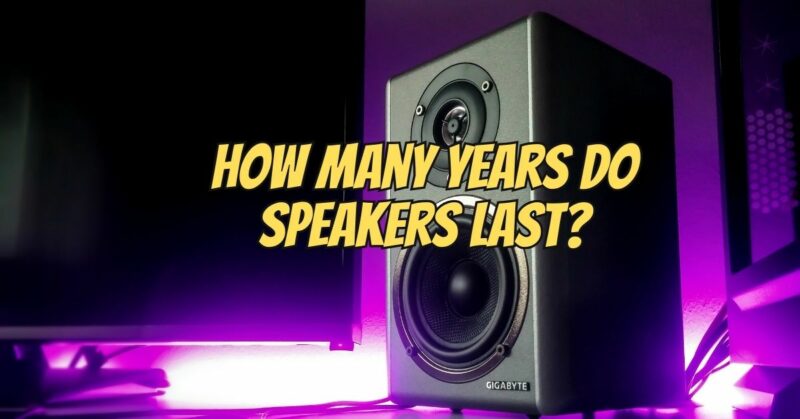The lifespan of speakers can vary significantly based on several factors, including the quality of the speakers, usage patterns, maintenance, and environmental conditions. In general, well-maintained speakers from reputable manufacturers can provide many years of reliable service. Here are some considerations regarding the lifespan of speakers:
- Build Quality: High-quality speakers with durable components and craftsmanship tend to have longer lifespans. Speakers from reputable manufacturers often come with warranties that can be a good indicator of their expected longevity.
- Usage: How frequently and under what conditions you use your speakers can impact their lifespan. Playing music at moderate volumes and avoiding prolonged periods of high-volume usage can help extend speaker life. Additionally, speakers used for professional purposes, such as in live sound reinforcement or DJ setups, may experience more wear and tear than home speakers.
- Maintenance: Regular maintenance, such as cleaning the speaker cones and checking for loose connections, can help prolong speaker life. Addressing issues like torn surrounds or damaged voice coils promptly can prevent further damage.
- Environmental Conditions: The environment in which speakers are used can affect their lifespan. Exposure to extreme temperatures, humidity, direct sunlight, and moisture can accelerate wear and damage speaker components. Keeping speakers in a controlled environment can help extend their life.
- Power Handling: Using an amplifier that matches the speaker’s power handling specifications can prevent overloading and damage. Underpowering or overpowering speakers can lead to damage over time.
- Speaker Type: Different types of speakers, such as full-range drivers, tweeters, woofers, and subwoofers, may have varying lifespans depending on their design and intended use.
- Aging: Like any mechanical component, speakers may naturally degrade over time, particularly if they are used regularly. Surrounds, suspensions, and voice coils can wear out, leading to reduced performance.
- Design and Materials: Advances in speaker design and materials have led to more robust and longer-lasting speakers. Modern speakers often benefit from improved engineering and materials compared to older models.
It’s important to note that while speakers may continue to function for many years, their performance characteristics may change over time. This can include subtle shifts in frequency response and efficiency. Eventually, speakers may reach a point where they no longer meet your desired performance standards.
To maximize the lifespan of your speakers, follow these best practices:
- Use appropriate amplification and avoid overpowering or underpowering speakers.
- Keep speakers in a clean and dry environment.
- Avoid prolonged exposure to extreme conditions.
- Practice responsible volume control and avoid prolonged high-volume usage.
- Perform regular maintenance and address issues promptly.
By taking care of your speakers and using them responsibly, you can help ensure that they provide many years of enjoyable and reliable sound reproduction.


